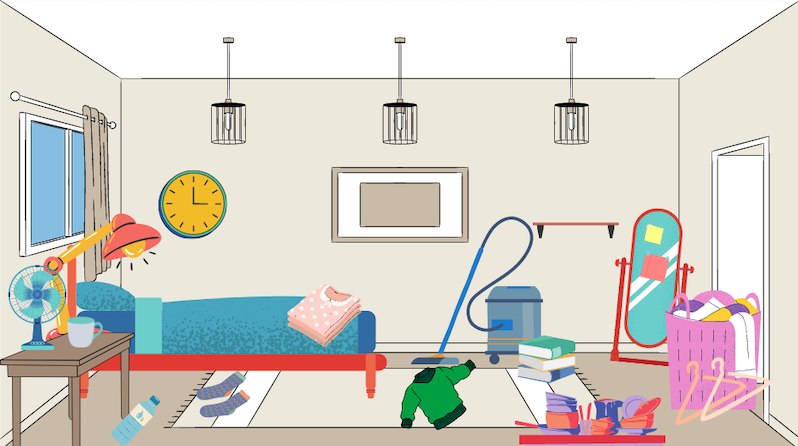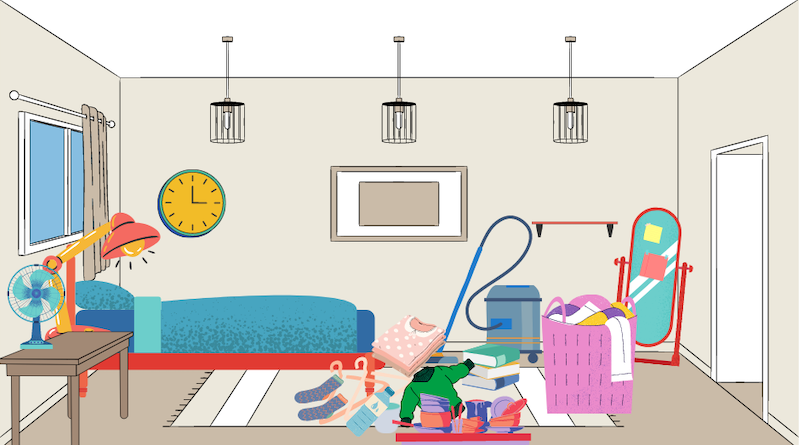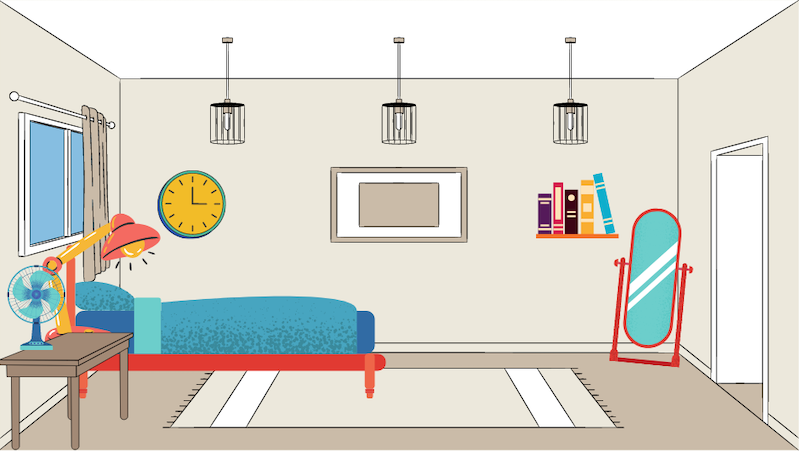You might have come to this page after reading our 5 Misconceptions about psychotherapy, or you might have just been curious about this article while browsing online. If the former is true, don’t worry, we’ll jump right in and explain how progress in therapy isn’t actually linear (in other words: why clients often feel suddenly worse during therapy, before feeling better).
Therapy often explores the recesses of our minds, which contains memories, emotions, instinctual behaviours, patterns, and our beliefs. This may sound silly, but let’s take a moment to imagine our mind as though it were a room in our house.

Looking at the room, there might be some clutter. Maybe there’s a closet that’s overflowing with things, and maybe there’s even a few objects in this room that you got so used to seeing, that you completely forgot they were there. Well, that’s similar to how humans often use compartmentalization to help store memories, both the good and the bad.
Now imagine that going to therapy signifies cleaning up our room. As we clean away, we often reflect on different objects that bring up different memories, maybe we find old sentimental gifts or even love letters from past relationships. Maybe we open up that dreaded closet and find all sorts of clothes and knick-knacks that we had completely forgotten about. When all of these old memories are resurfaced and explored, we might feel sentimental and shed a tear or two. Maybe these memories are painful, soothing, confusing, or joyful! Either way, it often slows us down in our cleaning process and we sometimes realize this might be a bigger job than we anticipated.
When things start to feel overwhelming

At some point, depending on your own cleaning process, you might start to feel discouraged that there’s so much to look at and put away. Maybe a whole new mess has been created by pilling everything up in the middle of the room. You might feel worried about tripping over things on the floor, or that you don’t want to deal with this mess anymore and it’ll just have to wait until another day. This would be the moment in therapy where things might start to feel overwhelming. You start to feel worse because everything is now exposed, and most of your items (memories) aren’t hiding in the background anymore.
Don’t worry though! In therapy, you won’t be left alone to continue cleaning up any of the mess. Your therapist will help you process through these experiences, memories, and the emotions they bring up. You can also develop new “cleaning” skills (like grounding, mindfulness, and self-compassion). When the job is finally done, you’re left with the same room, but there’s a fresh new excitement that you’ll have for it. Those same sentimental objects, or even those old love letters will still be around, but they’ll be tucked safely in a space in the room that you revisit every so often when you feel the need to. Maybe you’ll even throw away some old clothes and knick-knacks, and feel a sense of power of letting go, forgiving, and accepting what those items meant to you.
Don't worry, you're not alone

No matter what the mess might look like, whether it’s big or small, and no matter the “cleaning” skills you have, therapy can help you get through it.

